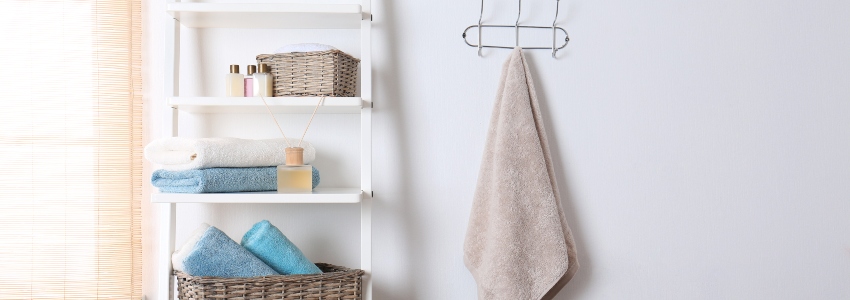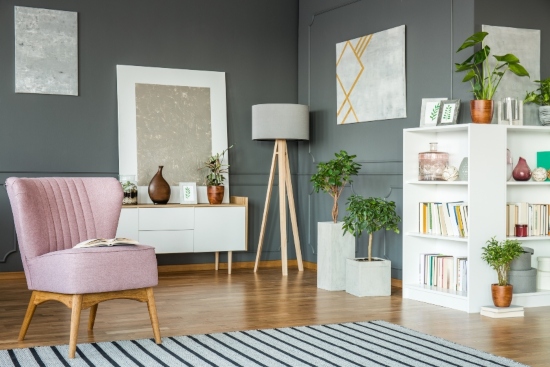Storage solutions for renters

Short on storage? Top tips to make the most of your rental space.
When you first settle into a rental property, it's not uncommon to find yourself grappling with limited storage space. But that doesn't mean you need to compromise on organisation, or the functionality of your living arrangements. With a bit of creativity and strategic planning, there are a number of ways to optimize storage, and make smaller spaces work. Let’s take a closer look.
In the lounge
One idea is to invest in furniture that serves a dual purpose, like lounge suites and ottomans with hidden compartments, or coffee tables with shelving underneath. This not only maximises your seating and surface area, but also gives you somewhere to stash items like rugs, books, toys, electronics and board games.
You can also make the most of vertical space, by installing slimline shelving units or floating shelves up the walls. This gives you a place to put precious display items, while keeping essentials off the floor. Decorative baskets and bins can be used too, for housing things such as magazines or remote controls – adding a stylish note, while keeping your living area ordered.
In the kitchen
As this is ‘the heart of your home’, efficiency here is key. That’s why it’s often worth spending a bit more time and money in the kitchen, to improve flow and make the spaces work.
Invest in items like pull-out pantry shelves, drawer dividers, and custom-sized organisers to maximise every inch of cabinet space. Explore wall- or ceiling-mounted storage options for pots, pans, and cooking utensils, and utilise under-cabinet racks for spices or small appliances, to free up precious counter space.
Also, larger rubbish and recycling bins are often better kept outside. Giving you more room to move, to work your culinary magic!
In the bedroom
This is your sanctuary, a place for peace and calm, so order plays a big part here. Opt for multi-functional furniture, such as a bed frame with integrated drawers for clothing or linen storage. There are also a number of cheap bookcase options that can be adapted to make great headboards. And try if you can, to find bedside tables with drawers or shelving built in.
In terms of your wardrobe, slimline hangers will help maximise closet space, and a few vacuum-packed storage bags can efficiently store clothes that are out of season under the bed until it is time to take them out again. A bench or ottoman placed at the foot of your bed can offer a dual-purpose solution – providing both seating and discreet storage for linen, extra pillows or overflow shoes and clothing.
In the bathroom
Instead of cluttering the edges of your bathtub or shower with products, use a hanging shower caddy to keep everything organised. Baskets or bins within cabinets or under the bathroom sink can help keep smaller items in place. Drawer organisers are also a great idea to tidy makeup, toiletries, and grooming essentials.
Next to the toilet, there’s usually a bit of space that you can leverage for storage. Via a narrow trolley or shelf system, you can create a place for towels, washcloths or ornamentals, like plants or scented candles.
Non-damaging adhesive hooks allow you to hang things like hair dryers and flat irons in a handy manner. Using an over the door hanging system will allow you a great spot for dressing gowns and towels to dry. Also, never underestimate the power of a basket to keep clutter away.
The less you have, the less you need
Something that can really help if you’re running short of space is to declutter on a regular basis. Also, if you happen to be moving house, this is the perfect time to rid yourself of anything that you don’t absolutely love. In every room that you pack there should be an empty donation box and a rubbish bag so you can dispose of items you no longer need. When in doubt, throw it (or donate it) out!
One last thing
If you’re thinking of doing any handy work or DIY, such as installing shelving or making alterations, always check with your landlord or property manager first to make sure you’re working within your lease agreement. Conditions can vary, depending on property and owner, so it’s always good to ask. 